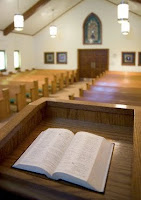We are pursuing an "open adoption". What does that mean? It is more than just telling a child they have been adopted, it is more than allowing birth parents to choose the family where their child is placed, it is more than allowing adoptive parents know some information on their child's birthparents.
True open adoption (as opposed to
closed adoption, or what some call
semi-open adoption) has at least one common denominator - openness to maintaining a relationship between a child's birth family and adoptive family throughout the child's life - with the
child's best interest in the center (as opposed to the
parents' best interest).

Formal adoption has been going on for decades in the United States. Today, we know - through extensive research and case studies - that most adoptees have a
natural desire and yearning to understand where they came from, not only to have their questions answered, but also to aid in their development of a sense of self. There is a great deal of literature about this issue - books, journal articles, etc. One in particular, often recognized as a classic, is called
The Primal Wound by Nancy Verrier, looks at the way in which most adopted children have something within them that is missing if they are unable to understand where they come from, and
why their birth parents felt they were unable to care for them. (I don't really like the term "wound" here - it makes adopted people sound helpless or pathetic, but nonetheless it seems at least the
concept is probably true).
I've been a bit hesitant to "jump on board" with ABC's new reality show "
Find My Family" highlighting the reunification of families, primarily those who were separated through adoption. The reason for my hesitancy is likely rooted in my background working with victims of trauma and the media's tendency to "market"
their pain, almost always sympathetically, but nonetheless through a sensationalized eye.
I've been a bit critical about the idea of filming adoptees, birth parents, birth siblings, etc. and their raw emotional response to something as heavy, as deep as past feelings of rejection, abandonment, etc. as they reunite with people they've been longing for their entire life - and then marketing their significant experience as a "show". In addition, I imagine that while reunification is wonderful, it is also
difficult. This part will undoubtedly
not be filmed, leading viewers to believe all reunifications are "easy" or a "simple" solution. It's also sad that those on the show only have the opportunity to be reunited by being on a show, as opposed to having access to their own records.

Nonetheless, I decided to TiVo "Find My Family" and see what the fuss was about.
I have to say that regardless of my hesitations (which have yet to be disproven but let's put that aside for now), the show is
certainly heartwarming, and tastefully celebrates the beauty of reunifcation. It's beautiful to watch as people, who might otherwise have not had the opportunity to do so, reunite with long lost relatives. I worry a bit that adoption might across as the "evil" behind these people's pain, however, I'm hoping the show will acknowledge that "adoption" wasn't the problem - but perhaps the "unknowing".
For me, the strongest message of the show is the fact that it strongly demonstrates the importance of
openness. Watching the show, it's clear that having no information and/or no connection was not helpful, and often traumatizing. In years past, openness was not appreciated in the adoption world. The idea was the
less that is known, the better. The less birthparents know, the better they will be able to heal. The less adoptees know, the better they can "move on" and "forget" about their roots...
But this is not reality. It is only natural that adoptees would want to figure out where they come from, and why they were relinquished. It is only natural that birth parents will want to know what happened to the child they felt they could not care for. So many adult adoptees today are searching. They are searching because they have so many unanswered questions. Birth parents are also searching. They want to know what happened to their child - so they too have questions.
Open adoption, contrary to popular belief, does not mean "co-parenting". Adoptive parents are the
parents. Research demonstrates children are not confused about this. But just because adoptees are loved by their adoptive parents and are an integral part of their adoptive family does
not mean they must completely negate their roots, or reject the birth parents who usually care a great deal about what happens to them. Open adoption simply means that the lines of communication stay open for all parties involved.
More about open adoption and how it can work in future posts -
Thanks for reading.





















